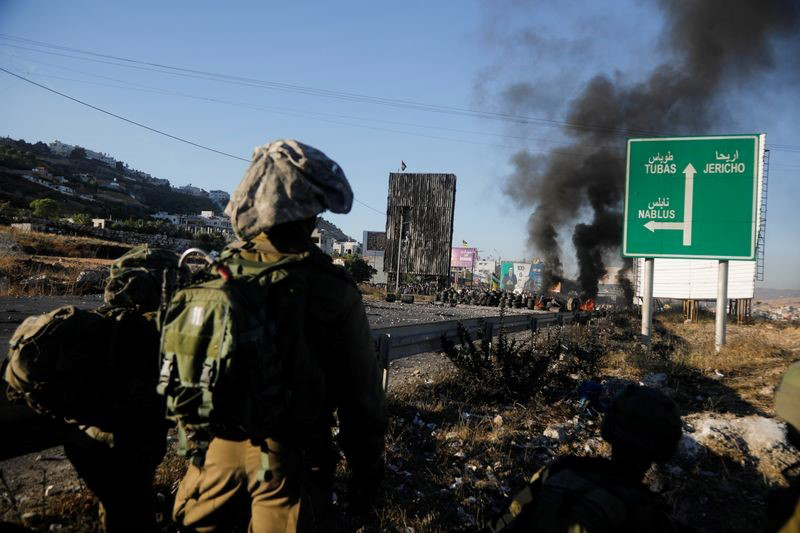GAZA, (Reuters) – Israel and Gaza militants vowed to keep fighting after U.S. President Joe Biden urged Prime Minister Benjamin Netanyahu to seek a “de-escalation” yesterday on the path to a ceasefire in the 10-day-old conflict.
An Egyptian security source said the two sides had agreed in principle to a ceasefire after help from mediators, although details were still being negotiated in secret.
A senior Hamas official, Moussa Abu Marzouk, also said late on Wednesday in an interview with Lebanon’s al-Mayadeen TV that he expected Israel and the Gaza militants to reach a ceasefire “within a day or two”, ending the cross-border violence.
Since the fighting began on May 10, Palestinian health officials say 228 people have been killed in aerial bombardments that have worsened Gaza’s already dire humanitarian situation.
Israeli authorities put the death toll at 12 in Israel, where repeated rocket attacks have caused panic and sent people rushing into shelters.
Regional and U.S.-led diplomatic efforts to secure a ceasefire have intensified but so far failed. Cross-border fire continued unabated after Biden’s latest call for calm, and Gaza’s Islamist rulers Hamas and other militants vowed defiance.
Netanyahu has repeatedly hailed what he has described as support from the United States, Israel’s main ally, for a right to self-defence in battling attacks from Gaza, home to two million Palestinians.
But Biden put the Israeli leader on notice in a telephone call that it was time to lower the intensity of the conflict.
“The two leaders had a detailed discussion on the state of events in Gaza, Israel’s progress in degrading the capabilities of Hamas and other terrorist elements, and ongoing diplomatic efforts by regional governments and the United States,” White House spokeswoman Karine Jean-Pierre told reporters.
“The president conveyed to the prime minister that he expected a significant de-escalation today on the path to a ceasefire.”
But at the United Nations, the U.S. mission said it would not support a French push for a Security Council resolution, saying it believed such actions would “undermine efforts to de-escalate” violence.
In a statement released soon after Jean-Pierre’s comments, Netanyahu said: “I am determined to continue this operation until its objective is achieved – to restore quiet and security to you, the citizens of Israel.”
Netanyahu had earlier told a meeting with foreign envoys to Israel that “it is not possible to set a timeframe” for the operations, Israeli media reported.
In response to Biden’s de-escalation call, Hamas spokesman Hazem Qassam said those who sought to restore calm must “compel Israel to end its aggression in Jerusalem and its bombardment of Gaza”, and then there could be “room to talk” of restoring calm.
The leader of Islamic Jihad, another Gaza militant group, said political talks “remain at a standstill”.
“The only path towards freedom (is) to protect Jerusalem and people,” said Islamic Jihad chief Ziad Al-Nakhala.
With Gaza rocket fire continuing into Wednesday night, a 72-year-old man was moderately injured when a rocket struck his house in the southern Israeli city of Sderot, medics said.
An Israeli air strike late on Wednesday in Deir Al-Balah, in central Gaza, killed a Palestinian man, his two-year-old daughter and his wife, who was seven months pregnant, medics said.
The Israeli military said its air strikes on Wednesday night had targeted buildings in north and south Gaza that it said were used by Hamas naval forces.
Hamas began firing rockets on May 10 in retaliation for what it said were Israeli rights abuses against Palestinians in Jerusalem during the Muslim holy month of Ramadan.
The rocket attacks followed Israeli security police clashes with worshippers at al-Aqsa Mosque in Jerusalem and a court case by Israeli settlers to evict Palestinians from a neighbourhood in Israeli-annexed East Jerusalem.
Around 4,000 rockets have been fired from Gaza since May 10, most of which have been intercepted by missile defences, the Israeli military said. Some 600 fell in Gaza, it said.






